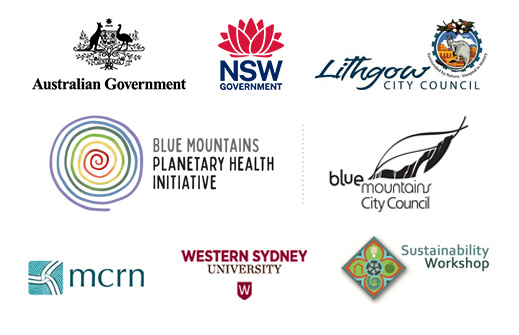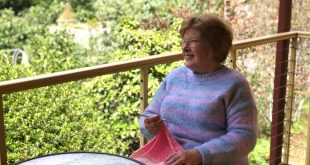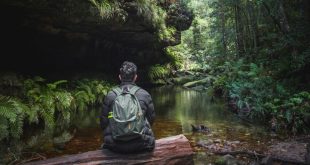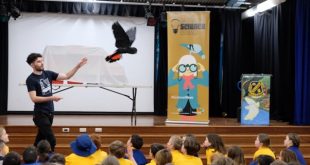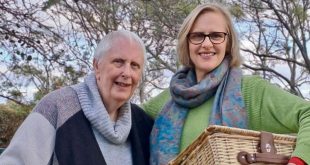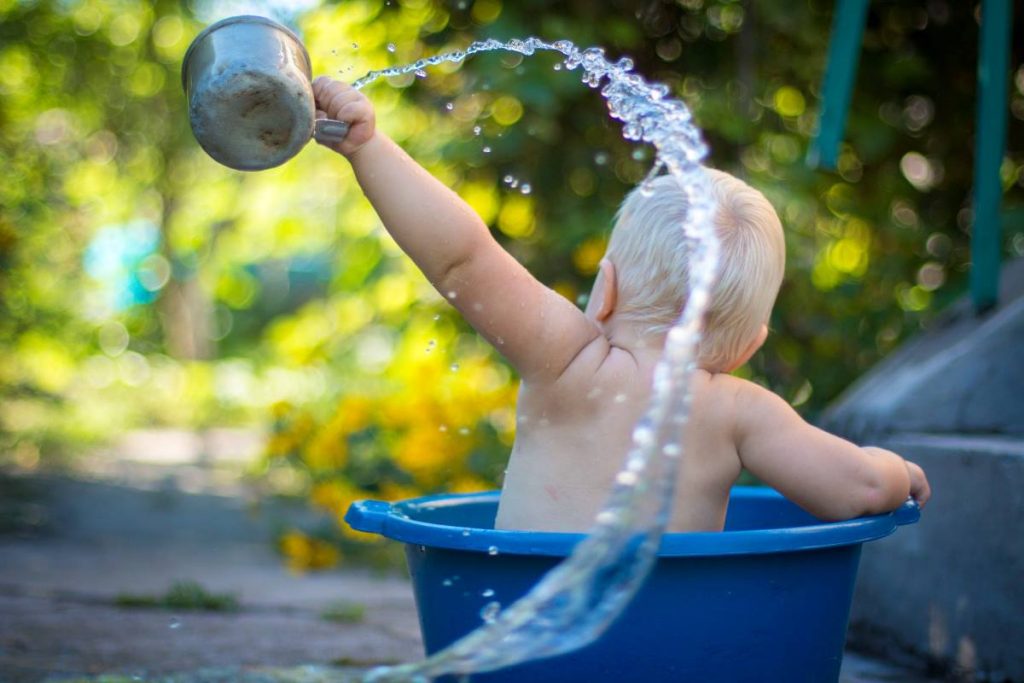
Photo by Lubomirkin on Unsplash
Story and photos by Julie Nance
When temperatures soar and your home heats up, tempers can easily become frayed and your health can take a hit. Not everyone has the benefit of air-conditioning, and all-day running costs are prohibitive for many people. In this guide we’ve provided some tips to help you cool down, and a sample of lower Blue Mountains free and low-cost places to visit to escape the heat.
You can also visit or call the Blue Mountains Visitor Information Centres at Glenbrook or Katoomba for more ideas on where to go and what to do when the weather heats up or you’re not sure about the conditions.
Health and Safety in the heat
If you are sweltering at home or venturing out and about in the heat, the NSW Department of Health’s “Keep cool, stay hydrated” online guide is a good starting point to help you, your family and friends stay safe during high temperatures.
The Department advises you should drink plenty of water regularly, even if you don’t feel thirsty. If your doctor has asked that you limit your fluid intake, ask how much water you should drink during hot weather. Do not replace your water intake with alcoholic or sugary drinks and carry water with you if you are spending time outdoors.
If you prefer to stay at home, the Department provides the following tips, especially helpful if you don’t have air-conditioning and/or your fans aren’t making a big impact:
- Wear light, loose-fitting clothes.
- Avoid being outdoors in the hottest part of the day as much as possible. If you have to go outside, seek shade or shelter.
- Close curtains and blinds to block out the sun.
- Spend time in the coolest area of your home.
- Limit physical activity e.g. household chores or exercise to early in the morning when it is coolest.
- Use stoves and ovens as little as possible as these can heat up the home.
- Wet your skin with cool water using a spray bottle or a damp sponge or cloth.
- Place cool packs or crushed ice in a damp towel loosely over your neck and shoulders.
- Take cool showers or baths or sit for a while with your feet in cool water.
- When it becomes cooler outside, open your windows and doors to allow the warm air out and the cool air in.
The Department recommends people seek out cool places or air-conditioned public facilities you can safely travel to without getting too hot. When outdoors, you should protect yourself from the sun by applying sunscreen and wearing sun-protective clothing, sunglasses and a wide brim hat.
The following guide provides ideas for places you can visit in the lower Blue Mountains to cool down, in air-conditioning and outdoors.
Check out our other Cool Mountains Guides in the Springwood area, Mid Mountains, Katoomba area and Blackheath area.
Icon key
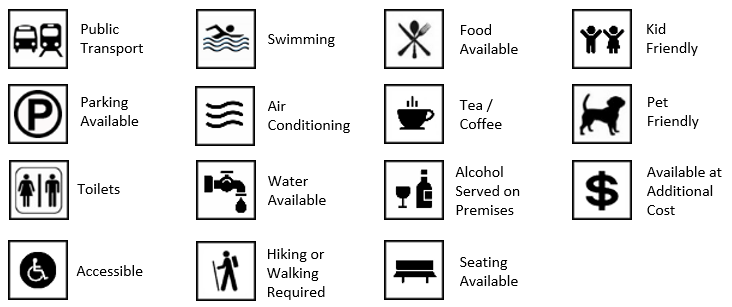
Note – pet-friendly sites don’t necessarily mean it is an off-leash area. Check with the venue before letting your dog off leash
Community Spaces
Belong Blue Mountains Lower Mountains Neighbourhood Centre









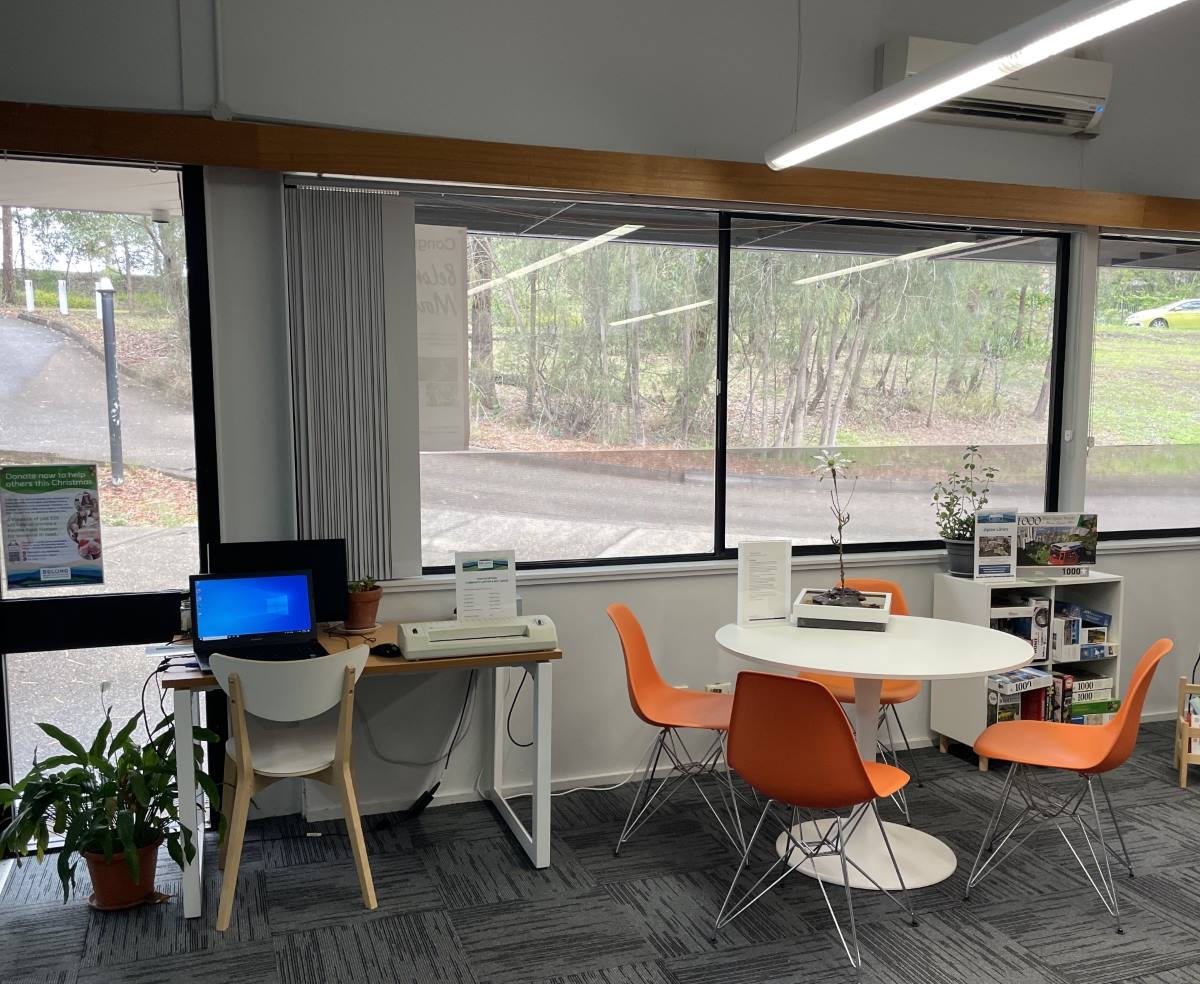
Relax in the Lower Mountains Neighbourhood Centre (photo supplied)
You can drop into the Lower Mountains Neighbourhood Centre at Blaxland from Tuesday to Friday for a cuppa and chat or simply to relax. There is a community laptop available. Centre representative Sharise says: “It is a safe and comfortable place for people to come. Whether it’s to escape the heat or whatever the situation is, everyone is welcome”. Check out the wide range of activities and groups you can also get involved with.
OPENING HOURS:
Tuesday to Friday: 9.00am-4.00pm
LOCATION:
33 Hope St, Blaxland
PHONE:
4739 1164
WEBSITE:
PUBLIC TRANSPORT:
Blaxland Train Station (3 to 5-minute walk)
Bus Routes: visit http://transportnsw.info/stop
Blaxland Library








The library is located next door to the Lower Mountains Neighbourhood Centre. It is open every day except Sunday. You can relax and read a book, newspaper or magazine in air-conditioned comfort or check out the What’s On calendar for events. It’s a quiet space so conversations, including on the phone, are best taken outside.
OPENING HOURS:
Monday to Friday: 10.00am-5.30pm
Saturday: 9am-4.00pm
LOCATION:
33 Hope St, Blaxland
PHONE:
4780 5904
WEBSITE:
https://library.bmcc.nsw.gov.au
PUBLIC TRANSPORT:
Blaxland Train Station (3 to 5-minute walk)
Bus Routes: visit http://transportnsw.info/stop
Swimming spots

Taking a dip to cool off. (Photo by Valentin Lacoste on Unsplash)
Glenbrook Swim Centre











There are three different-sized swimming pools to enjoy in a relaxed setting: a toddler pool, an enclosed heated program pool with ramp access, and a 50m pool. Blue Mountains City Council provides free entry to the aquatic facilities for children 3 years and younger and those aged 75 years+.
OPENING HOURS:
Program pool – Year round, Monday to Friday 6am-9am (Additional times may be available subject to programs)
50m pool – Summer (October to March): Mon to Fri 5.30am-7pm; Sat & Sun 8am-7pm;
Public Holidays 8am-6pm.
LOCATION:
Cnr Fletcher & Wascoe St, Glenbrook
COST:
75 years and Over FREE
3 years and Under FREE
Adult $7.10
Concession $5.40
Family $19.60
Spectator $2.70
PHONE:
4739 5880
WEBSITE:
https://www.bmcc.nsw.gov.au/blue-mountains-leisure-centres/leisure-centres
PUBLIC TRANSPORT:
Bus Routes: visit http://transportnsw.info/stop
Jellybean Pool, Glenbrook





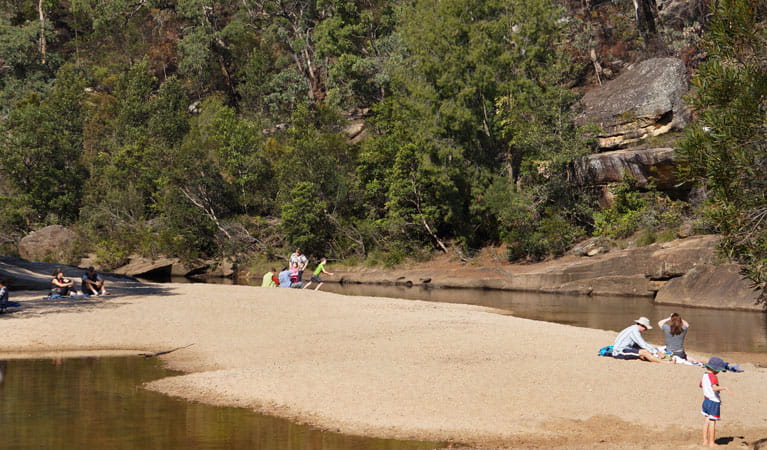
Jellybean Pool (Photo: Steve Alton)
A tranquil spot surrounded by sandstone cliffs and featuring a small sandy beach. Cool off in the calm waters or seek shade under a gum tree.
Important safety information from NSW National Parks & Wildlife Service:
The aquatic environment around rivers, lakes and lagoons can be unpredictable. If you’re visiting these areas, take note of these river and lake safety tips.
Swimming at Jellybean Pool? Check with staff at Glenbrook Information Centre before swimming and ask about bacteria levels on the day. Swimming can be dangerous at Jellybean pool after heavy rain.
More safety information regarding bushwalking and emergencies is available on the NPWS site here >
OPENING HOURS:
8.30am-7pm during daylight savings; 8.30am-6pm the rest of the year.
LOCATION:
Bruce Rd, Glenbrook. You can choose to park your car in the paid car park on Bruce Rd before the National Park tollgate or you can drive into the National Park and park at the designated Jellybean Pool car park at the Glenbrook Information Centre. This is situated 200m after the tollgate on the left. This option results in a shorter, 10-minute downhill walk to the pool itself.
COST:
Both the paid car park and National Park entry fee are $8 per vehicle, per day. You can also pay for your visit via the Park’nPay app.
PHONE:
1300 072 757 (13000 PARKS) for the cost of a local call excluding mobiles.
WEBSITE:
NSW National Parks and Wildlife Service
PUBLIC TRANSPORT:
Bus Routes: visit http://transportnsw.info/stop
Glenbrook Cinema











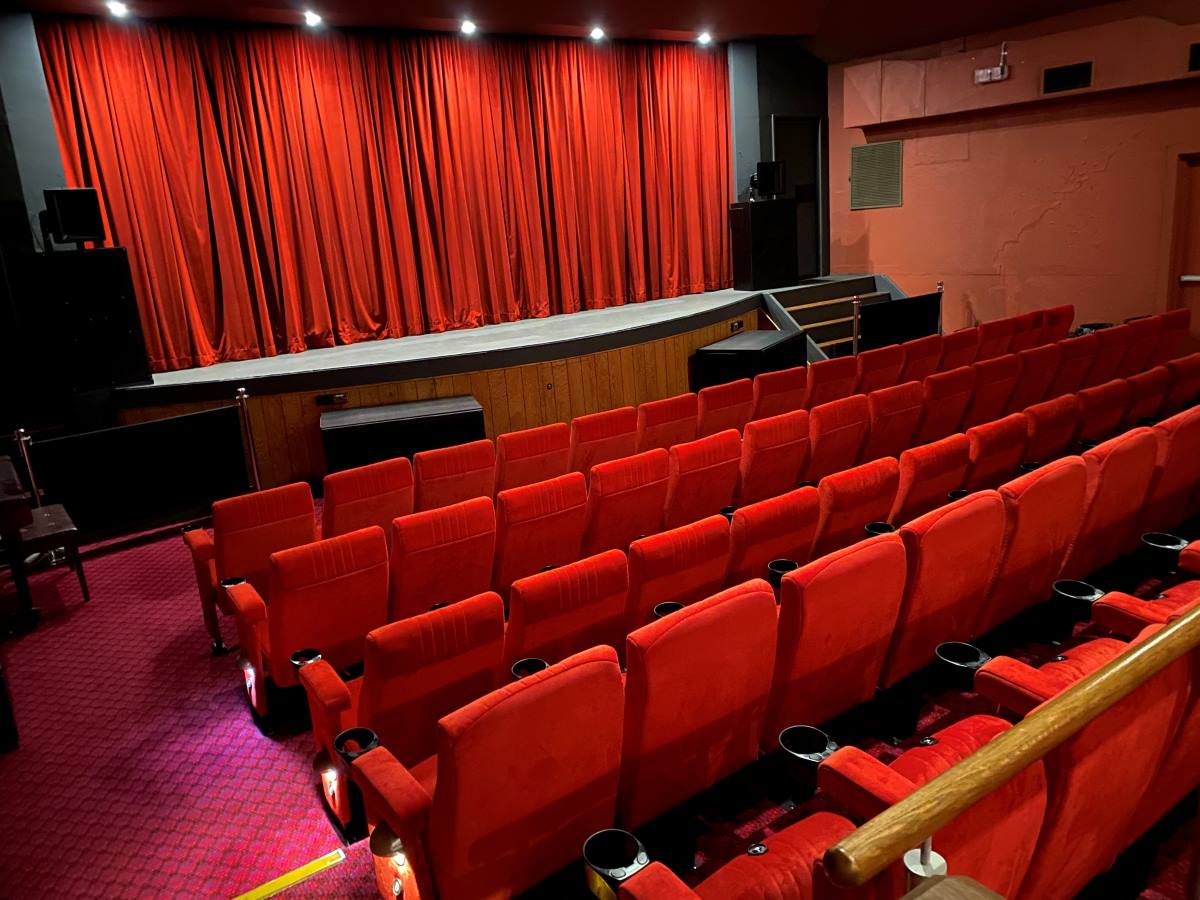
Enjoy respite from the heat at Glenbrook Cinema (photo supplied)
There is something soothing about spending time at this charming, family-run independent cinema. Relax in the air-conditioning and watch a movie or two. There’s an interesting mix of mainstream releases, arthouse films and old classics. In addition to choc tops, popcorn and other treats on offer, you can take tea or coffee into the cinema in a cup and saucer.
There is a hearing loop active every session, and the Cinema offers Open Captions for selected features and sessions (text with sound description displayed on the screen to allow all patrons to enjoy movies together).
OPENING HOURS:
Session times vary – see website or phone details below.
LOCATION:
2 Ross St, Glenbrook
COST:
$15 general admission; $25 double feature (2 movies same day); $10 Online VIP tickets + $2 booking fee ($10 annual membership)
PHONE:
Information: (02) 4739 4433
Reservations: (02) 4739 0003
WEBSITE:
https://www.glenbrookcinema.com.au/
PUBLIC TRANSPORT:
Glenbrook Train Station (7 to 10-minute walk)
Bus Routes: visit http://transportnsw.info/stop
Clubs and Pubs
Glenbrook Panthers Bowling Club











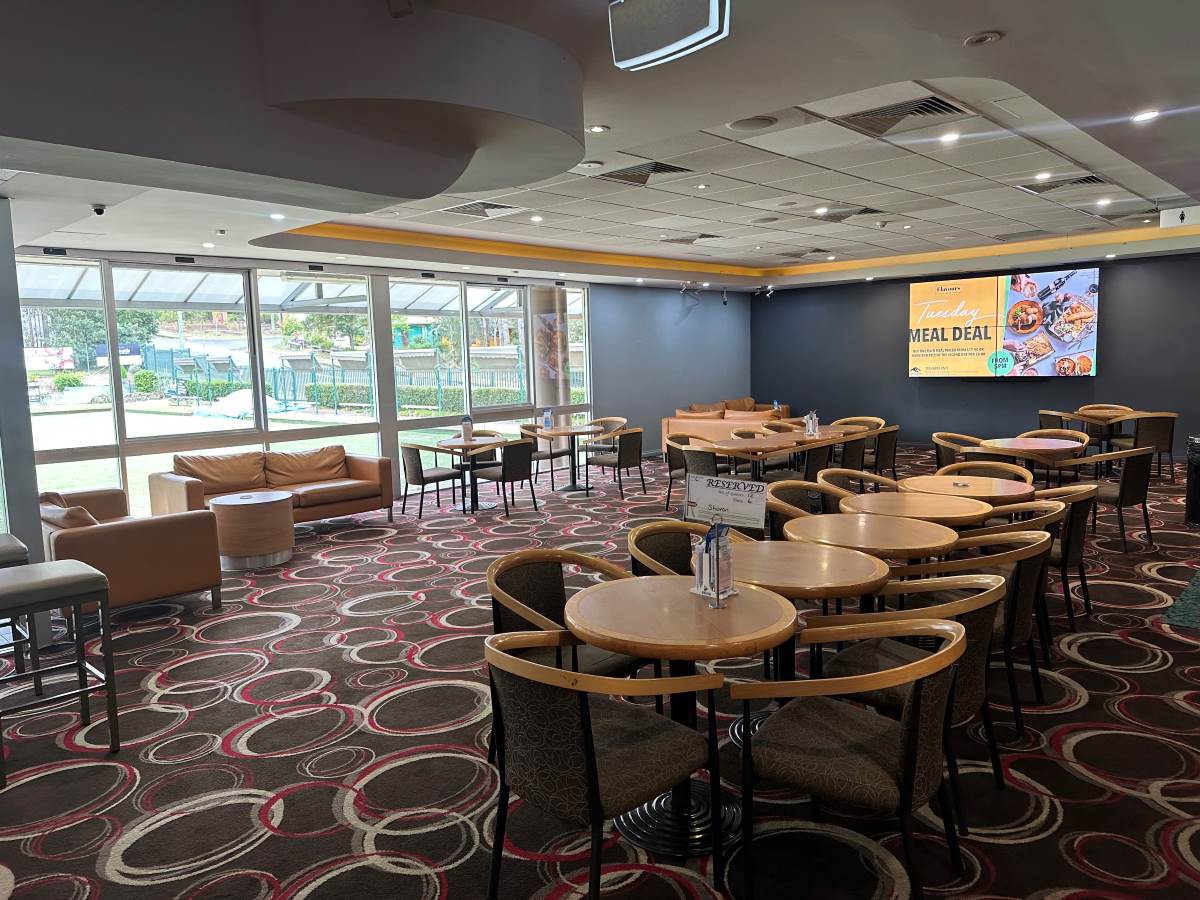
Lounge area at Glenbrook Panthers Bowling Club (photo supplied)
The Club has a lounge area where you can relax from 10.30am and watch the large TV or bring a laptop or other device to make use of the free Wi-Fi. Manager Kathy Borich says: “People can come in and make themselves comfortable and simply drink water if they don’t want to buy anything. We are a low-cost facility and everyone is welcome.”
If you live within 5km of the Club you need to be a member ($5 per year), however, reception can organise for a member to sign you in at no cost. Children under the age of 18 need to be supervised by an adult at all times. There is also the Flavours Café with a range of snacks and meals to choose from. Check out the “What’s On” page for special events.
OPENING HOURS:
Open at 10.30am seven days per week.
Closes 9pm Sunday, Monday & Tuesday; 11pm Wed & Fri; and 12.30am Fri and Sat
You can have a hot beverage at Flavours Café from 10.30am with cooked food available from 11.30am.
LOCATION:
1 Hare St, Glenbrook
PHONE:
4720 6800
WEBSITE:
https://glenbrook.panthers.com.au/
PUBLIC TRANSPORT:
Glenbrook Train Station (10 to 12-minute walk)
Bus Routes: visit http://transportnsw.info/stop
Lapstone Hotel











Bartender Matthew Williams says you are welcome to relax in the lounge area and use the free Wi-Fi, with no pressure to buy a drink or food from the bistro open from 11am to 9pm. “Often people come in here and work on their laptops to escape the heat and enjoy the air-conditioning. People have also been known to sit and read books.”
OPENING HOURS:
10am-2am Monday to Saturday
10am-11pm Sunday
LOCATION:
15 Great Western Highway, Blaxland
PHONE:
4739 1266
PUBLIC TRANSPORT:
Bus Routes: visit http://transportnsw.info/stop
Take Action:
- Find other cool options in the Blue Mountains:
- Visit the healthdirect website for more information about hot weather risks and staying cool.
- For health information and advice 24 hours a day, 7 days a week phone healthdirect on 1800 022 222, or speak to your doctor.
- Check out these helpful links:
Share this article:
This story has been produced as part of a Bioregional Collaboration for Planetary Health and is supported by the Disaster Risk Reduction Fund (DRRF). The DRRF is jointly funded by the Australian and New South Wales governments.
